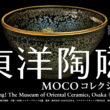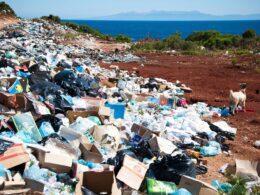Are sugar-sweetened beverages related to colorectal cancer? According to a new study published in the medical journal Gut, drinking it every day may increase the risk of early colorectal cancer.
Seattle, WA (Business Northeast) – Most patients with colorectal cancer have problems with high-sugar, high-oil, and low-fiber diets. A research team from Washington University School of Medicine tracked more than 110,000 people and found that sugar-sweetened beverages have various health hazards, including the possibility of causing cancer.
In recent years, the number of people under 50 who have colorectal cancer has increased rapidly. In the US, adults born around 1990 run twice the risk of colon cancer and four times the risk of rectal cancer of adults born around 1950.
Previous studies in the Netherlands and France also showed that more and more people under the age of 50 have colorectal cancer, and the incidence rate of 20-29 years old is gradually increasing.
The latest study analyzed the data of “Nurses’ Health Study II” and tracked more than 110,000 people between 1991 and 2015. Since 1991, these women have reported their diet through questionnaires every four years.
Among them, 41,272 reported what and how much they drank during their teenage years (13-18 years of age) in 1998. Researchers found that 109 of the participants had bowel cancer. Sugar-sweetened beverages have a variety of health hazards, as well as the possibility of causing cancer.
For every extra 8-ounce serving of sugary drinks, the risk increases by 16%. In the growth stage of 13-18 years, women who drink sugar-sweetened beverages every day have a 32% higher risk of early colorectal cancer in adulthood.
After adulthood, compared with women who drank less than one sugar-sweetened beverage a week, women who drank more than two sugar-sweetened beverages a day were more than twice as likely to be diagnosed with early colorectal cancer.
These beverages include carbonated and non-carbonated drinks sweetened with sugar and high-fructose corn syrup, like soft drinks, fruit drinks, punches, and sweetened iced tea, explains lead study author Jinhee Hur, Ph.D., a research fellow at the department of nutrition in the Harvard TH Chan School of Public Health.
This is an observational study. It is impossible to determine the cause of cancer, only the association between sugar-sweetened beverages and colorectal cancer. The researchers said that because most of the participants were white women, the study results may not apply to men or other groups/races.
Although this study cannot determine how sugar-sweetened beverages cause cancer, sugar-sweetened beverages harm health. Everyone should reduce sugar-sweetened beverages. Excessive sugar intake will damage the teeth and may also cause insulin resistance and increase the risk of obesity, high blood pressure, high blood sugar, and high blood lipids.










